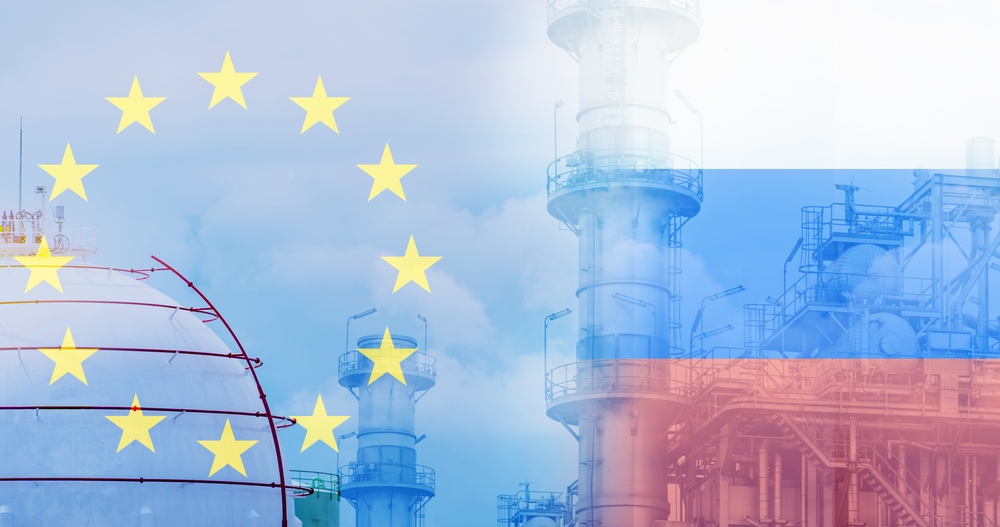The European Union announced its first ban on Russian liquefied natural gas imports as part of the bloc’s 19th sanctions package against Moscow, accelerating the timeline to January 2027 to cut off crucial revenue streams for Russia’s war in Ukraine.
European Commission President Ursula von der Leyen said the comprehensive package targets Russia’s energy revenues and sanctions evasion networks following recent escalations including drone attacks that violated EU airspace in Poland and Romania.
‘Russia’s war economy is sustained by revenues from fossil fuels. We want to cut these revenues. So we are banning imports of Russian LNG into European markets,’ von der Leyen said. ‘It is time to turn off the tap.’
The package will need unanimous approval from all 27 EU Member States to be adopted, though Hungary and Slovakia have historically opposed energy-related sanctions in previous packages.
The proposed measures include a ban on Russian LNG imports into European markets by January 2027, sanctions on an additional 118 Russian shadow fleet vessels bringing the total to more than 560, and full transaction bans on major energy companies Rosneft and Gazpromneft. The package also imposes asset freezes on refineries, oil traders and petrochemical companies in third countries, including China.
For the first time, the EU will target cryptocurrency platforms with transaction bans on additional Russian and third-country banks, prohibit cryptocurrency transactions, and restrict dealings with entities in special economic zones. Export controls will cover 45 companies in Russia and third countries providing support to the Russian military.
The package also mentions the lowering of the price cap for Russian crude to $47.60 per barrel from previous levels, which the EU agreed to earlier this month.
The LNG ban addresses a significant gap that has allowed Russian gas to continue flowing to European markets throughout the conflict.
The accelerated timeline follows pressure from US President Donald Trump, who demanded European allies immediately cease Russian energy imports as a condition for imposing ‘major sanctions’ on Russia. Trump wrote to NATO nations that the purchase of Russian oil by NATO states has been ‘shocking’, and that ‘it greatly weakens your negotiating position’.
As Western nations step up action, Russia has secured alternative markets for its energy exports. Last month, Russia and China signed a ‘legally binding’ memorandum to build the Power of Siberia 2 gas pipeline, which would transport 50 billion cubic metres of Russian gas annually to China via Mongolia.
Von der Leyen emphasised that EU analysis shows sanctions are ‘severely affecting Russia’s economy’, with interest rates at 17% and persistently high inflation. ‘Russia’s overheated war economy is coming to its limits,’ she claimed.
The Commission is also developing a ‘Reparations Loan’ mechanism using cash balances from immobilised Russian assets to finance Ukraine’s defence efforts. ‘This is Russia’s war, and the perpetrator must pay for it,’ von der Leyen stated.
